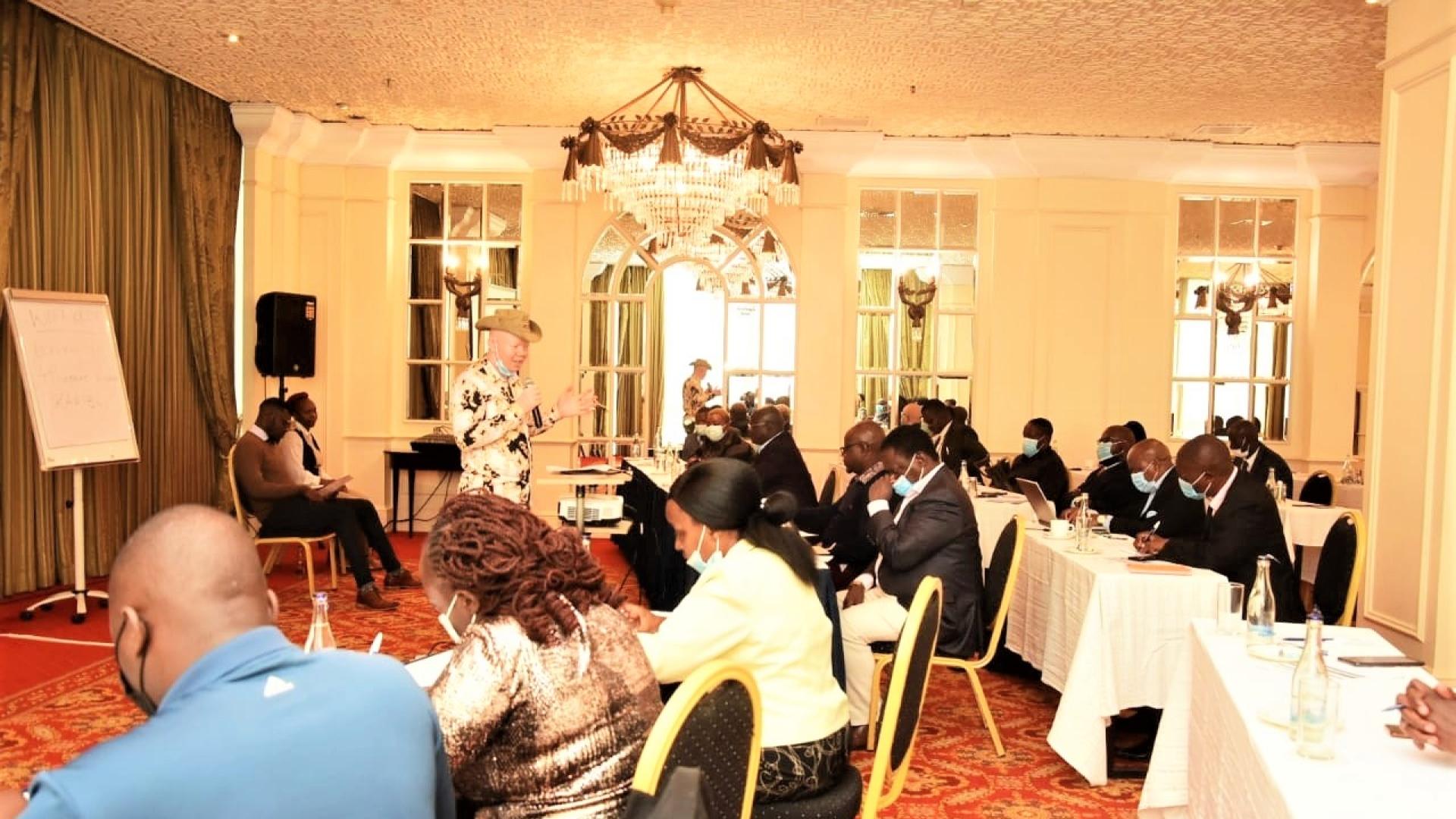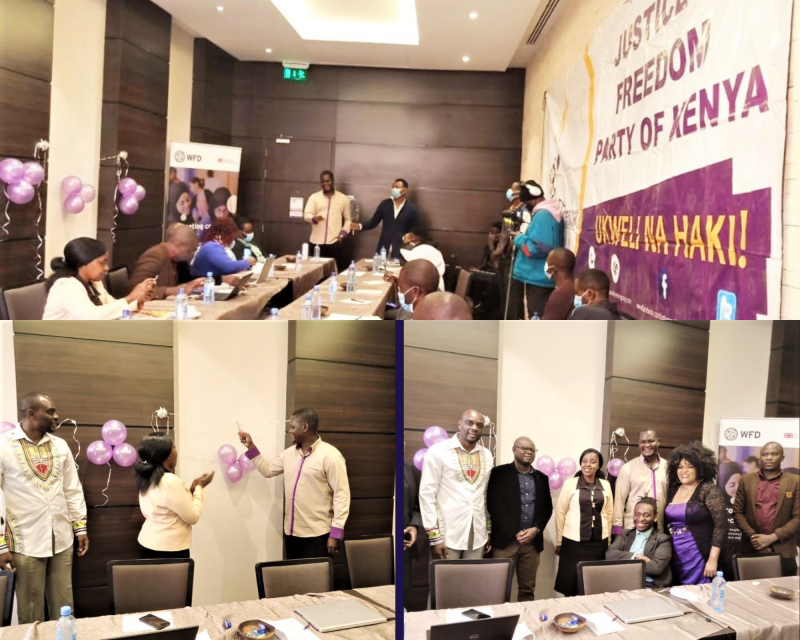Progress being made by political parties in Kenya to promote inclusion and other opportunities

Despite the Kenyan population comprising of up to 2.2% (0.9 million) persons with disabilities (PWDs), the number of those who hold leadership positions within political parties remains significantly low. This is however gradually changing. Westminster Foundation for Democracy (WFD), through its Kenya Inclusive Political Parties (KIPP) programme funded by Demo Finland, has seen tremendous efforts by political parties in prioritising and embracing accessibility, and the inclusion of diverse disability voices.
On 3rd June 2021, WFD hosted a meeting with political parties, disabled persons organizations (DPOs), civil society organizations (CSOs), Parliamentary and County Assembly Caucuses to evaluate commitments and progress of PWDs inclusion by political parties. Good progress was noted towards institutionalizing disability. For example, through political parties launching disability caucuses/leagues; review of party constitutions and internal documents to include disability; involvement of more PWDs in the party leadership and decision-making organs; and, formal and informal engagements between political parties and DPOs.
WFD was also honoured on June 4th, 2021 to join the Justice and Freedom Party of Kenya (JFPK) in the launch of their National Disability Caucus as part of the party’s efforts to promote greater inclusion. The party pledged to have maximum representation of PWDs within its internal structures and organs, and to take into consideration different categories of disabilities and ensure gender balance. The launch of the national disability caucus by JFPK is a direct result of the capacity development programmes provided under the KIPP programme activities such as trainings, review and technical support of political parties, bilateral and cross-party dialogue on various inclusion agenda.

Recommendations towards enhancing further inclusion
The meeting with political parties, DPOs, CSOs, Parliamentary and County Assembly Caucuses provided a platform for continued constructive dialogue on the inclusion agenda. The participants recommended that even though political parties are making encouraging progress towards PWDs participation in party affairs, there is need to put in place certain priorities for this to continue.
For instance, it is imperative for political parties to review their internal documents such as, manifestos, constitutions, and nomination policies to be more responsive to PWDs needs. Ideally all parties’ documents should be diversified by incorporating braille and large prints for ease of accessibility and use by PWDs.
The pariticpants also recommended that political parties should also review their electoral rules to be more disability friendly. For example, by making sure that polling stations are more accessible to PWDs during political parties’ primaries.
Additionally, parties should also establish directorates for disability leagues/caucuses and decentralize their operations right from ward, sub-county, county to the national level. Disability leagues are fundamental in mainstreaming disability issues within parties, and in enhancing mobilization and recruitment of PWDs to become party members through marketing of party manifesto. The leagues/caucuses should as well be adequately funded to ensure effective operation.
The DPOs and CSOs participating in the KIPP programme committed to continue their efforts on promoting inclusive political parties through:
- Continuous sensitization of PWDs through social media and other related channels of the importance of joining political parties.
- Lobbying for political parties to diversify their internal documents and communication channels to be more inclusive and responsive, and to prioritize the needs for PWDs in party processes, such as, priority in registration or at voting queues.
- Advocating for the Political Parties Dispute Tribunal to give PWDs fair/level playing field in hearing and ruling on party related disputes.
As the country moves closer to the upcoming general election in August 2022, it is crucial for all the political parties to embrace and make their structures, commitments, and processes more inclusive to respond to the needs of PWDs. These actions will help build and maintain a broader base of constituent support and earn citizen trust.